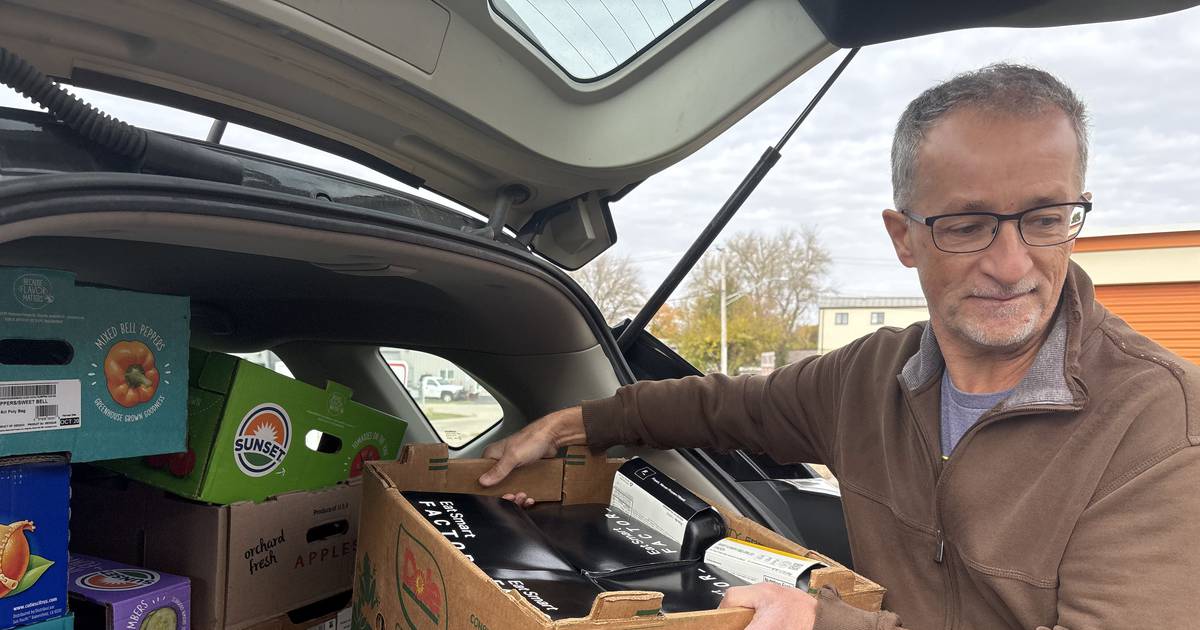Copyright Shaw Local Enewspapers

As nonprofits, businesses, and individuals across northern Illinois prepared for the uncertainty surrounding SNAP, President Donald Trump’s administration said Monday that it will partially fund the food assistance program. The announcement followed a pair of judges’ rulings that required the government to keep the program running, The Associated Press reported. [ Read more: Trump administration says SNAP will be partially funded after judges’ rulings ] Ahead of the ruling, Gov. JB Pritzker signed an executive order allocating $20 million in state funding as a stopgap measure to support Illinois’s seven food banks, which supply more than 2,600 food pantries across the state, Capitol News Illinois reported. Lt. Gov. Juliana Stratton called the funding “a drop in the bucket” compared to the amount needed to fill the gap left if federal funds were shut off. Increased demand Food pantries across northern Illinois are preparing for – and some are already seeing – increased demand. It’s “kind of scary right now because our food pantry is starting to run low and we’re having double the amount of [families] than what we normally get,” Lt. Jessica Tosh of the Salvation Army Food Distribution Center in Sterling told Shaw Local last week. [ Read more: Sauk Valley-area pantries prepare for SNAP pause ] “I hope that something gets done so that the pantries aren’t the only ones that are feeding people,” said Sonya Pedersen, pantry director at St. John Lutheran Church in Joliet. Every Saturday morning, cars line up along Hennepin Drive waiting to get into the church near the Louis Joliet Mall for pantry food. The lines have been getting longer the last couple of weeks, Pedersen said. [ Read more: Demand rises at Will County food pantries with SNAP uncertainty ] “I hope we have enough,” she said on Wednesday, looking ahead to the possibility that SNAP benefits will be cut off. “Last Saturday we had just enough.” On a typical Saturday, 350 cars arrive at St. John’s. That number has grown to 430 over the past two weeks, she said. One food pantry in McHenry County saw 128 families come through a distribution last week, compared to 75 to 100 families, director Kim Halper said. [ Read more: Amid SNAP uncertainty, McHenry County food pantries see uptick in demand, donations ] The state of Illinois administers roughly $350 million in federal SNAP benefits per month. Nearly 2 million people in Illinois receive SNAP. “There’s no possible way we can meet that gap. For every one meal we can provide, SNAP provides nine,” Jen Lamplough, chief impact officer of the Northern Illinois Food Bank, told the Daily Herald. Staff with Rooted for Good, one of DeKalb County’s largest food pantry providers, spent Thursday prepping at their warehouse on Bethany Road in DeKalb. The nonprofit feeds locals in multiple ways, including a mobile food pantry that makes stops at churches and other centers throughout the county each month. And at a Genoa food center that offers shopping options twice a month. “We have been ordering additional food in so that we will have extra food so that we can help meet the need of that potential increase of neighbors coming to us,” Executive Director Heather Edwards said. [ Read more: DeKalb County food pantries brace for increased need amid SNAP uncertainty ] Food pantries across northern Illinois had already been expecting an increase in demand as a result of almost $200 billion in cuts in the next 10 years to the SNAP program. The cuts are part of the One Big Beautiful Bill Act that President Donald Trump signed into law July 4. The bill changes eligibility requirements, putting an estimated 360,000 Illinoisans at risk of losing SNAP benefits. Along with the change in eligibility requirements, Illinois and other states will have to cover a greater portion of costs for the SNAP program. As part of the new rules, able-bodied adults ages 55 to 64 without dependent children and parents of children 14 and older will have to work at least 20 hours a week or participate in training programs. Before, this applied only to people up to age 54. Jen Lamplough, chief impact officer at Northern Illinois Food Bank, also noted that the Low-Income Home Energy Assistance Program is also being affected by the government shutdown. “It’s one hit after another for our most vulnerable,” Lamplough said. [ Read more: Kendall County food pantry expects to see increase in demand with uncertainty on SNAP ] Helpers all around Among the businesses stepping up is Hy-Vee, which is offering free meals for children 12 and younger from Nov. 3 to Nov. 7 at its locations with hot food service. The grocer will also offer $3 hot meals from 4 to 7 p.m. for all customers. The meals are for dine-in or carryout Monday through Friday. Customers can also purchase a $5 or $10 food-donation bag in-store or online. Each bag includes essential pantry items that will be delivered to local food banks, according to the release. [ Read more: Hy-Vee to offer free meals to children through Nov. 7 due to SNAP challenges ] Jewel-Osco in Bolingbrook designated its 2025 Holiday Bucks program to the DuPage Township Food Pantry, the grocer said. Now through December, customers can donate “holiday bucks” in increments of $1, $5, or $10 when they check out, which the store will then give to the pantry to purchase turkey and ham dinners for families who utilize the food pantry. [ Read more: Upcoming Joliet-area food collections and distributions to help those in need ] Two DeKalb County bars also teamed up to help fight food insecurity through a contest. On Wednesday, half of all food and beverage sales between the two bars – Lord Stanley’s Annex in DeKalb and MVP Sports Bar in Sycamore – will go to help keep local families from going hungry. The businesses also started collecting paper towels and cleaning supplies, with all donations and proceeds going to the Barb Food Mart and Spartan Food Pantry. [ Read more: Other ways to support DeKalb County residents during SNAP uncertainty ] [ Read more: Where can I find free food pantries in DeKalb County? ] Other groups and agencies are also hosting food drives and distributions. In Will County, for example, that includes police departments, fire departments, libraries and Catholic Charities. In Sterling, a No Kings protest Saturday doubled as a food drive with protesters bringing donations for the Sauk Valley Food Bank.



